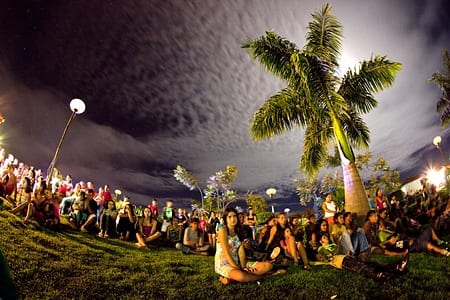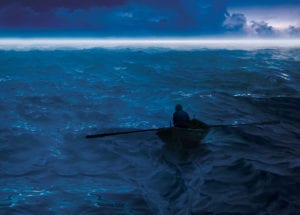By Daniel de la Calle
Iraquara is a village in a mountainous area called Chapada Diamantina, a place of great natural beauty, full of caves and amazing rock formations. To get there we left Salvador’s airport through a long and dense giant bamboo tunnel, managed to squeeze out of the city’s chaotic rush hour to head west for six hours along the bumpy road that dissects the Chapada. Somewhere along the way we stopped in the dark for dinner and I had the chance to try another juice on my list of exotic Brazilian fruits. Anyone that has been to Brazil knows the country is crammed with juice, milkshake and “sorvete” parlors with menus that list mysterious names such as graviola, jenipapo, jabuticaba, caja manga or açai, all from the Cerrado and Amazon regions. At night, back in the room, I secretly search for them online to put faces to those tastes in my mouth. My new total, absolute super favorite since that night is cupuaçu, a fruit in the family of cacao that is absolutely delicious and unique and should soon become one of the most popular flavors in the world. And guess what, a few years back someone in this insane world of ours thought exactly that and had the fantastic idea of literally patenting its seed and trademarking the name “cupuaçu”. I won’t further comment because I do not know how to do it with moderation, but I would love to hear what you, whoever you are reading this, think of such a thing.
The FASAI Environmental Film Festival in Iraquara provides half a week’s worth of entertainment and environmental films to a region where there are few cultural affairs or fun. In Iraquara there is no cell phone coverage (which surprisingly did not stop any of us from carrying them around, talk of an addiction), almost no internet and very poor electricity. In fact, the tent where the documentaries were screened needed to be air conditioned for risk of death by steaming and a generator was brought to power it because the village would not be able to keep it running. When it was turned off at night some adjustments were made since the houses in Iraquara were feeding from the generator as well. Very cute. The festival organizers set up workshops for the school kids to learn about stop-motion and basic computer graphic work, and the emphasis was placed on showing the films to them.
At night they set up an open-air cinema and people sat on the grass, under the palm trees to watch what seemed mostly like Brazilian action movies. Beautiful setting, just look at the pic below. I guess those films provided an amusing contrast to the bleak look that the afternoon documentaries had given. For example, one of the films that won was also with us at FICA last year and tells the story of the occupation of land and killing of indigenous people in the Amazon during the 80’s. The film’s title is Corumbiara. More from Salvador and Joao Pessoa very soon.




